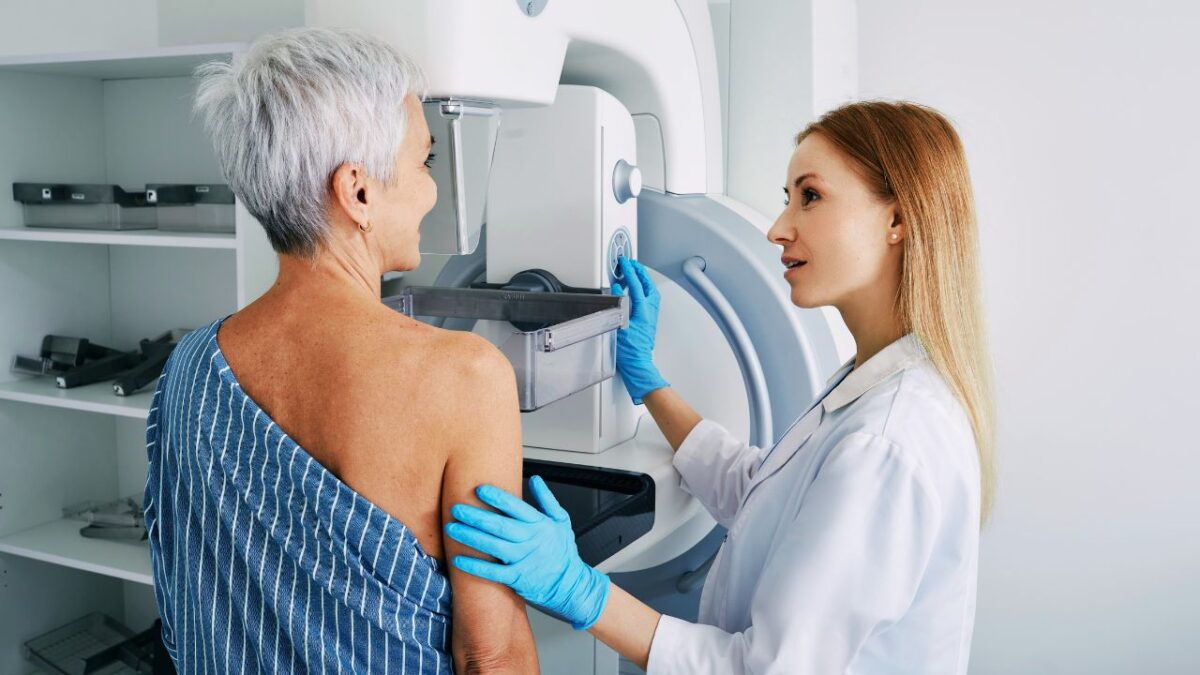Prevention Starts Now: Healthy Aging in Perimenopause
The Quiet Moment That Changes Everything
It usually doesn’t start with a diagnosis.
It starts with a whisper. A flicker of fatigue that lingers too long. A forgotten word mid-sentence. A night drenched in sweat that feels more like panic than temperature. For many women, perimenopause doesn’t arrive with sirens—it tiptoes in, disguised as stress or aging or “just one of those weeks.”
Imagine her: 46 years old. A leader at work, the emotional anchor at home, someone who’s always had her routines down to a science. But lately, her body doesn’t respond the same. Her workouts feel harder. Her heart seems to race after a single flight of stairs. And her sleep—once solid—is now fragile, interrupted by flashes of heat and waves of inexplicable anxiety.
She tells herself it’s fine. Just hormones. Nothing she can’t handle.
What she doesn’t realize—what so many women aren’t told—is that this is the beginning of one of the most critical health transitions of her life.
Perimenopause is not just about symptoms—it’s a window of opportunity. A pivotal period where small, intentional choices can create a ripple effect across decades. It’s a time when bone density silently begins to decline, when cardiovascular risk edges upward, when cancer screenings become more urgent—not because she’s aging, but because her biology is shifting in powerful, invisible ways.
And the truth is: by the time most women are told to “start thinking about prevention,” they’ve already missed the most influential moment.
That moment is now.
This article is your roadmap to healthy aging in perimenopause—starting with the three pillars every woman deserves to understand and act on: bone health, heart disease prevention, and cancer screening. Backed by the latest research and rooted in what women actually experience, we’ll walk through not just the why, but the how. Because the goal isn’t just to survive perimenopause.
It’s to thrive into the decades beyond it—with strength, clarity, and the kind of fierce, preventive power that begins the moment you decide it’s time.
And it is time.
Bone Health – Strength Beneath the Surface
You don’t feel your bones getting weaker. There are no warning lights, no aches that signal a silent loss. And yet, in the three to five years surrounding menopause, women can lose up to 20% of their bone density. Let that sink in: one-fifth of the very structure holding you up can disappear—before you even reach your last period.
This isn’t fear-mongering. It’s biological fact.
Why Bone Health Matters More Than Ever
Your bones aren’t just architecture. They’re active, living tissue—and during perimenopause, the hormonal shifts (especially the decline in estrogen) speed up the natural process of bone breakdown. This leads to osteopenia and eventually osteoporosis, dramatically increasing your risk of fractures.
And a fracture in midlife isn’t just inconvenient. A hip fracture can take away your independence. In the year following a hip break, 20% of women die, and more than half never regain full mobility. (Cleveland Clinic, 2022)
The Critical Window for Prevention
Here’s the truth the standard guidelines rarely mention: bone loss begins before menopause ends. The SWAN (Study of Women’s Health Across the Nation) study found that spinal bone density can drop by 2.5% per year in late perimenopause.
And yet, most doctors don’t recommend a bone density scan (DEXA) until you’re 65.
That’s too late.
If you’re in your 40s or early 50s, and you have risk factors like low body weight, a history of fractures, smoking, or early menopause—you need to advocate for earlier screening. (Bonza Health, 2025)
What You Can Do Today
1. Push for a DEXA scan
If you’re in midlife with risk factors, ask your doctor. Be persistent. This scan is painless, fast, and incredibly revealing.
2. Move with purpose
Weight-bearing exercises like brisk walking, dancing, hiking, or strength training aren’t just good for your mood. They tell your bones, “Stay strong.”
3. Feed your frame
Make sure you’re getting enough calcium (1,000–1,200 mg/day) and vitamin D (600–800 IU/day), ideally through food but with supplements if needed.
4. Consider hormone therapy
Estrogen replacement can help slow bone loss—especially in women with early menopause or those at high risk of osteoporosis. It’s not for everyone, but it’s worth a nuanced conversation with your provider.
5. Know your numbers
Ask about FRAX—a tool that calculates your 10-year fracture risk. If your score is high, medications like bisphosphonates or anabolic agents may be necessary.
Bone loss isn’t inevitable. But if you wait until you feel it, it may already be too late. The time to build strength beneath the surface is now.
Cardiovascular Prevention – Your Heart, Reimagined
For decades, estrogen acted like an invisible bodyguard for your heart. It helped keep blood vessels flexible, supported healthy cholesterol levels, and offered protection against cardiovascular disease. But as estrogen begins to decline in perimenopause, that natural defense fades—and your heart notices.
Why Heart Health Deserves Center Stage
Heart disease is the number one killer of women. It doesn’t announce itself with drama. For many, it arrives subtly—with fatigue, indigestion, or shortness of breath that’s easy to dismiss. But underneath those signs, risk factors are quietly stacking up.
Blood pressure creeps higher. Cholesterol starts to shift. Metabolism slows. And when these changes go unchecked, they create the perfect storm for future heart attacks or strokes.
The Midlife Shift
Perimenopause is a tipping point. It’s when doctors should begin regularly screening you for:
- Blood pressure
- Fasting blood glucose
- Lipid panel (cholesterol)
- Weight and waist circumference
- 10-year cardiovascular risk (using tools like ASCVD Risk Estimator)
If these aren’t part of your regular care, it’s time to ask for them. Prevention isn’t just about tracking numbers—it’s about reclaiming your health narrative.
What You Can Do Today
1. Know your numbers
Get a baseline of your blood pressure, cholesterol, and glucose. Then check in yearly.
2. Redesign your plate
A Mediterranean-style diet rich in vegetables, healthy fats, whole grains, and lean protein supports both heart and hormonal health.
3. Make movement non-negotiable
Even 30 minutes a day of moderate exercise reduces heart disease risk, improves mood, and helps with weight maintenance.
4. Manage stress and sleep
Chronic stress and poor sleep can both raise cortisol levels and increase cardiovascular risk. Don’t treat rest like a luxury—it’s foundational.
5. Talk to your provider about HRT
While HRT is not universally recommended for cardiovascular prevention, starting it within 10 years of menopause or before age 60 may offer heart benefits for some women.
Your heart deserves as much attention as your hormones. And with the right steps, you can keep it strong for the long haul.
Cancer Screening – Early Eyes, Lifesaving Impact
Perimenopause isn’t just a time of shifting cycles—it’s also when cancer risk begins to change. While not every woman will face cancer, the likelihood increases with age. The good news? Early detection saves lives.
The Screenings That Matter Now
1. Breast Cancer
- Start annual or biennial mammograms at age 40 if average risk.
- If you have a family history of breast cancer or dense breast tissue, talk to your doctor about earlier or additional screening like 3D mammography or MRI.
2. Cervical Cancer
- Continue Pap smears every 3 years, or every 5 years with HPV co-testing.
- You can stop screening at 65 only if you’ve had adequate normal results previously.
3. Colorectal Cancer
- Start screening at age 45, earlier if you have risk factors.
- Options include colonoscopy (every 10 years), FIT test (yearly), or Cologuard (every 3 years).
4. Lung Cancer
- If you’re a current or former smoker (20 pack-year history, age 50-80), ask about low-dose CT screening.
What You Can Do Today
1. Know your family history
Share this with your doctor—it can change your screening recommendations.
2. Schedule overdue appointments
Many women delay screenings. Don’t. Early detection leads to early action.
3. Ask about risk-based screening
Not all cancers are one-size-fits-all. Ask about personal risk assessments, especially for breast and ovarian cancers.
Cancer screening is a proactive act of self-respect. It doesn’t just protect your life—it honors it.
Your Healthy Aging Assessment Checklist
This checklist isn’t overwhelming—it’s empowering. Use it as a conversation starter with your healthcare provider or as a private wake-up call.
BONE HEALTH
- DEXA scan (if risk factors)
- Calcium + vitamin D intake
- Weight-bearing and resistance exercise
- HRT discussion (if applicable)
- FRAX score calculation
CARDIOVASCULAR HEALTH
- Blood pressure check
- Cholesterol and glucose labs
- Weight and waist circumference
- Daily movement routine
- Sleep and stress management
- Mediterranean-style eating pattern
- Cardiovascular risk calculation
- HRT discussion for heart health (if appropriate)
CANCER SCREENING
- Mammogram
- Pap smear/HPV test
- Colonoscopy/FIT/Cologuard
- Lung CT (if smoker/former smoker)
- Family history assessment
- Personalized risk discussion (e.g., BRCA, Lynch syndrome)
LIFESTYLE + WELLBEING
- Nutrition check-in (adequate protein, fiber, micronutrients)
- Alcohol and smoking habits review
- Mental health screening (mood, anxiety, social support)
- Sleep quality assessment
- Stress-reduction plan (yoga, therapy, mindfulness)
Prevention is Power
Perimenopause is not a pause—it’s a pivot. And what you do in this chapter determines how strong, vibrant, and empowered your next one will be.
This is your invitation to stop waiting for things to get worse.
This is your moment to get stronger, smarter, and more self-aware than ever.
Start now.
Because aging well isn’t luck.
It’s a choice.
And today, that choice is yours.
Disclaimer
This article is for informational and educational purposes only. It is not intended to serve as a substitute for professional medical advice, diagnosis, or treatment. Always consult with a qualified healthcare provider regarding any questions you may have about a medical condition or health goals. Never disregard professional medical advice or delay seeking care because of something you have read here.
References
American Academy of Family Physicians. (2025). Health maintenance in postmenopausal women. American Family Physician. https://www.aafp.org/pubs/afp/issues/2025/0500/health-maintenance-postmenopausal-women.html
American College of Obstetricians and Gynecologists. (2021). Osteoporosis prevention, screening, and diagnosis: ACOG clinical practice guideline number 1. https://www.acog.org/clinical/clinical-guidance/clinical-practice-guideline/articles/2021/09/osteoporosis-prevention-screening-and-diagnosis
Bonza Health. (2025, June 17). DEXA scans in perimenopausal women: The case for earlier bone health screening. https://www.bonzahealth.com/blog/dexa-scans-in-perimenopausal-women-the-case-for-earlier-bone-health-screening
Cleveland Clinic. (2022, March 15). Osteoporosis and menopause: What you need to know. Cleveland Clinic Health Essentials. https://health.clevelandclinic.org/osteoporosis-and-menopause
Cleveland Clinic. (n.d.). DEXA (DXA) scan: Bone density test. https://my.clevelandclinic.org/health/diagnostics/10683-dexa-dxa-scan-bone-density-test
Hopkins Medicine. (2025). Navigating perimenopause: 5 tips from a women’s health provider. https://www.hopkinsmedicine.org/health/wellness-and-prevention/navigating-perimenopause-5-tips-from-a-womens-health-provider
Mahannah, K. (2023). How to prevent osteoporosis in perimenopause and menopause. Dr. Kathleen Mahannah. https://drkathleenmahannah.com/blog/osteoporosis-prevention
Nash, Z., Al-Wattar, B. H., & Davies, M. C. (2022). Bone and cardiovascular health in menopausal women. Best Practice & Research Clinical Obstetrics & Gynaecology, 81, 61–68. https://doi.org/10.1016/j.bpobgyn.2022.04.002
Women’s Health Initiative. (n.d.). Women’s Health Initiative (WHI). Wikipedia. https://en.wikipedia.org/wiki/Women%27s_Health_Initiative


